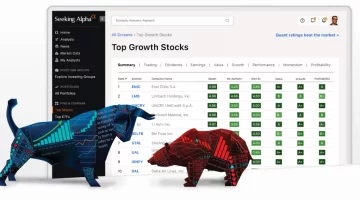Everything to Know About Home Loans in the UAE for Expats
A home loan is one of the most common loans for individuals around the world. It presents the most effective way to enhance or diversify your property portfolio.
With a home loan, you are able to purchase a new dream property, transfer your mortgage from other financial institutions to decrease your monthly payments, refinance your current property, invest in new property, and invest or refinance plots. In other words, you can upgrade your current living situation, broaden your investment portfolio, and ensure that your monthly payments are as low as possible.
Whether you are looking to move to the UAE, invest in property here, or upgrade your current residence, read on for everything you need to know about home loans in the UAE for expats.
1. It is recommended to get pre-approval before property hunting.
As a prospective property buyer in the UAE, it is advisable to first get a mortgage pre-approval to establish your budget. When you sign a sales agreement, you are required to pay a down payment (could be as much as 20-30 percent of the purchase price). If you pay this prior to obtaining financial approval and are then denied a home loan, you will have no choice but to forfeit your deposit. Therefore, it is highly recommended that you obtain your pre-approval before you start seriously considering properties.
Additionally, you also want to ensure that your sales agreement includes a clause that states the transaction is dependent on a property valuation by the bank. By having this in the agreement, your deposit will be protected in case your mortgage is denied on the grounds that the property is overvalued. Alternatively, you can have this valuation conducted before signing the sales agreement.
In addition to the down payment, other initial costs to keep in mind include a property Registration Fee, Mortgage Registration Fee and Transfer fee (varies by Emirate). You may also need to pay a real estate commission and a valuation fee. When you add up all these initial costs, they could cost you approximately five to seven percent of the overall property cost.
2. Each bank has its own lending policy.
As in most countries, banks in the UAE have a range of lending policies depending on their own borrowing capacity calculation formulas. That being said, all banks limit home loans so that repayments do not exceed more than 50 percent of your monthly income. Furthermore, to determine your borrowing capacity, these banks will also consider any existing debts you have, including credit card debt, student loans, and other personal loans.
As there is such a wide range of lending policies and rates, it is highly recommended that you shop around and do your research before deciding on the most suitable option for you. Keep in mind that these different policies and rates can result in significant differences in your pre-approved mortgage limit.
3. The maximum duration for loans in the UAE is 25 years.
When it comes to getting a home loan in the UAE, the maximum duration generally allowed is 25 years. If you are a salaried person, you are eligible for a loan if you are aged between 21 and 65 (at loan maturity), while self-employed persons are eligible from age 21 to 70 (at loan maturity). Keep in mind that while a long-term loan decreases the size of your monthly payments, it will also raise the amount of interest you have to pay over the loan's lifetime.
For many individuals, the best strategy is to take a long-term loan as it maximises your borrowing capacity, but then make additional payments throughout the course of the loan. For example, a CBD home loan allows you to repay up to 15 percent of your outstanding balance once every year without any additional charges or fees. Having this flexible option enables you to pay off your mortgage more quickly and will save you a significant amount of money in interest.
Other eligibility requirements to keep in mind for expatriates who are considering a home loan in the UAE are your monthly income and length of time in your current position. As a salaried individual, in order to be eligible for a CBD home loan, you need to have a minimum monthly income of AED 12,000 and a minimum length of service of six months. If you are self-employed, your minimum monthly income must be AED 20,000, and your business must be in operation for at least three years.
4. Mortgage rates in the UAE are updated regularly.
An important thing to note about mortgage rates in the UAE is that they are based on the Emirates Interbank Offered Rate (EIBOR) and are updated regularly. As the UAE dirham is pegged to the US dollar, the mortgage rates that are offered in the UAE vary depending on changes that occur in the US Federal Reserve's interest rates.
For example, you can obtain a CBD home loan for a competitive interest rate that starts from 2.15% per annum. These loans are available in amounts of up to AED 15 million and feature flexible repayment options, including 0% processing fees on buyouts and 50% waiver on valuation fees. What’s more, you have the opportunity to refinance your property by releasing cash against your fully paid property and buy a new home.
With these features, it is no surprise that CBD is the top choice for expats looking for home loans, as well as for those needing an online bank account in the UAE.
Are you considering taking out a home loan in the UAE? Why or why not? What aspects of the home buying process are you nervous about? What further questions do you have? Let us know your thoughts and any relevant insights in the comments below.
More to Read:
Previous Posts:






